Home > Newsletters > February 2022
| No More Business as Usual: Black Lives, Deaths, and Grief Matter |
|
by Dr. Jamie Eaddy Chism
|
|
Amid today’s national conversation about race, racism, and Blackness, life as we’ve known it is inconceivably different, changed in a way that many have found difficult to integrate. Accompanying these changes are a myriad of emotions, notably fear, anxiety, and grief, among others. In times like ours, where burgeoning personal and communal chaos exists, caregivers are called upon to provide comfort and support to people struggling with crises, grief, and loss in unfamiliar territory. This may be especially true when that loss is the death of a loved one.
|
|
|
 |
|
| INSTRUCTOR Profile |
|
Valoria Walker: A Doula by Destiny
|
|
by Garrett Drew Ellis
|
|
As INELDA continues to strengthen its infrastructure, our commitment to DEI and justice remains at the forefront. Part of this commitment includes diversity of ethnicity, experience, identification, and thought within every level of the nonprofit’s leadership, management, and teaching staff.
|
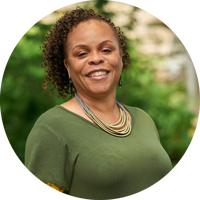 |
|
In July of 2021, a number of new instructors who identify as people of color (POC) were added to INELDA’s team of instructors. Valoria Walker, a Black woman with a range of experience, education, and commitment to the end-of-life field, joined to instruct the growing community of end-of-life doulas. Coming to INELDA from Maryland and the capital region, Valoria shares not only her wealth of knowledge, but also a sensibility that is unique to the needs and perspectives of the Black community surrounding death, dying, grief, and aging.
|
|
Q&A with Valoria
|
|
Valoria, What made you want to become an end-of-life doula?
|
|
Honestly, I had no plans to ever become an end-of-life doula. I didn’t know such a thing existed. But to make a long story short, after losing my mother, I felt a strong desire to influence individuals to have gentle conversations around preparing and planning for the end of life. That is why I say to anyone who asks me this question: My mother’s death birthed my destiny to be an end-of-life doula. As an end-of-life doula, I am charged to take the sting out of the hard conversations around death and to normalize it.
|
 |
|
|
|
14
February |
 |
Peer Mentoring & Support Group – BIPOC
Second Monday of every month, 7:00–8:30 p.m. (ET). This is a space for members who are INELDA-trained BIPOC doulas to connect with a diverse doula body, collaborate, and share ideas, experiences, and feelings from culturally specific perspectives. Log in through your member account.
|
|
|
14
february |
 |
Grief and Loss Counseling and Support Service
Beginning February 14, 2022, we will offer one-on-one counseling and emotional support to our trained members, Care Partners Class graduates, and current EOL doula students. The 45-minute sessions will be held online via Zoom. Please contact us at [email protected] to schedule an intake call and appointment.
|
|
|
17
february |
 |
Peer Mentoring & Support Group – PRIDE
Third Thursday of every month, 7:00–8:30 p.m. (ET). This is a space for members who are INELDA-trained LGBTQIA2S+ doulas to hear each other, support each other, encourage each other, and learn from each other in a safe space. Log in through your member account. |
|
|
23
february |
 |
Waiting and Wading: Navigating Black GriefWednesday, 7:00–8:30 p.m. (ET). Join INELDA’s Dr. Jamie Eaddy Chism and Medina Jones, Master of Divinity and hospital chaplain, for our monthly member webinar to examine the African American experience with grief and end-of-life care, learn advocacy tips, and identify ways to wait with and wade through the waters of grief with empathy. |
|
28
february |
 |
Care Partners Class
Seats are still available for INELDA’s March Care Partners Class beginning February 28. This four-session, 12-hour class will explore mortality and teach participants how to be a compassionate and knowledgeable guide to friends and loved ones when they enter the dying process.
|
|
|
|
|
|
|
|
|
2
march |
 |
Peer Mentoring & Support Group – INELDA Doulas
First Wednesday of every month, 7:00–8:30 p.m. (ET). We will discuss creative ways to find and work with clients and other topics relevant to the group. Log in through your member account.
|
|
|
|
|
|
| MEDIA OF THE MONTH |
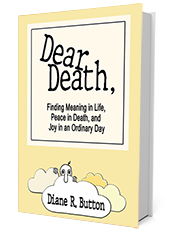 |
Dear Death, Finding Meaning in Life, Peace in Death, and Joy in an Ordinary Day
|
| by Virginia Chang, Ph.D |
|
What happens when two INELDA-certified doulas collaborate to live meaningfully? They create a new book: Dear Death, Finding Meaning in Life, Peace in Death, and Joy in an Ordinary Day, written by Diane Button and edited by Virginia Chang, Ph.D. Released in November 2021, this inspirational read is about how to live fully, from now until the moment you die.
The first part of the book explores the “Four Pillars of a Meaningful Life” and what ultimately brings us joy and meaning in life. Through the lens of the aging and the dying, the book explores how we can heal, change, forgive, and grow, even until the very last hours of life.
|
|
 |
|
|
Shining a Light on Trauma-Informed Care
|
|
by Lara Stewart-Panko
|
|
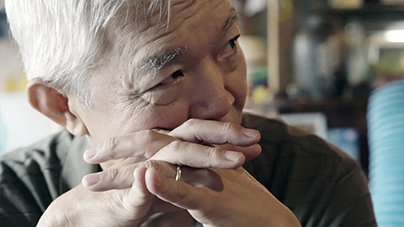
|
|
Trauma-informed care is becoming a standard approach in most forms of caregiving, and end-of-life doula support can be greatly enhanced by applying this perspective to our work. Here are some foundational elements:
What is trauma?
A common misunderstanding is that events are “trauma.” However, trauma is not defined solely by event details. It’s about the effect events have on someone—how their system processes what happened to them.
|
|
|
|
 |
|
| INELDA UPDATE |
CARE PARTNERS CLASS FOR THOSE SEEKING TO USE END-OF-LIFE DOULA SKILLS AT HOME
|
|
In response to growing interest from family members and loved ones who want to support someone close to them in the end phases of life, INELDA has developed a Care Partners Class. If you, too, are curious about the work end-of-life doulas do and how you might use the profession’s concepts at the bedside to help a loved one navigate the dying process, this class might be right for you. READ MORE
|
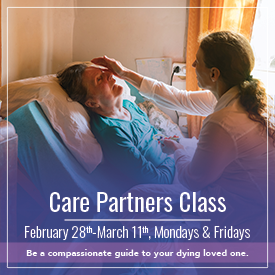 |
|
|
INELDA INTRODUCES NEW GRIEF AND LOSS COUNSELING AND SUPPORT SERVICE
|
|
INELDA is proud to launch a new support service for doulas and caregivers. Beginning February 14, 2022, we will offer one-on-one counseling and emotional support to our trained members, Care Partners Class graduates, and current EOL doula students. Our Grief and Loss Counseling and Support Service is included in your annual membership fee, with no additional cost to members. Our support center staff will provide one-on-one counseling offering support and processing of grief, anticipatory grief, loss, and caregiver support. Sessions will be held online via Zoom and will run 45 minutes. READ MORE
|
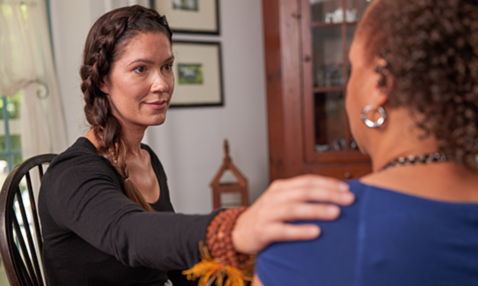 |
|
INELDA DOULA LOGO KIT
|
| In case you haven’t seen it yet, new logos are available for all INELDA-trained doulas to download for local use on your business cards, letterhead, and other collateral materials. We ask that you read and sign off on our updated scope of practice and code of ethics documents in order to access the new logos. READ MORE |
|
| STAFF UPDATES |
| Katina Perkins joins INELDA as an online technical administrator. To this role she brings over 20 years of experience and expertise in client development, coaching, mentoring, and operations training. She holds a master’s degree in education that has been pivotal in her ability to create many successful adult learning programs in a variety of industries. Her strengths include identifying clients’ needs, providing solutions, and cultivating positive outcomes. Katina is a catalyst for cultural awareness, which drives her deeply rooted passion for social and organizational change. Katina lives and works in Lake Elsinore, California. |
|
|
| INELDA’S february WEBINAR |
|
Monthly Member Webinar
|
|
|
|
Waiting and Wading: Navigating Black Grief
|
Wednesday, February 23rd, 7:00-8:30 pm (ET)
|
|
Few studies have explored the grieving process among people of African descent. Many doulas may have unanswered questions: Are there unique factors that influence how African Americans grieve? How might doulas enter into the grief experience with people of African descent without causing more harm? What are the implications of Black grief for doulas and end-of-life care?
Join us for our monthly member webinar in February to explore these questions. A conversation between Dr. J and Medina will examine the African American experience with grief and end-of-life care, provide helpful tips for advocacy, and identify ways to wait with and wade through the waters of grief with empathy.
READ MORE
|
 |
 |
|
| PRACTICE CORNER |
| TOOLBOX TIPS |
 |
During COVID, planning and attending funerals, memorials, and other honoring and celebration of life ceremonies is challenging.
|
|
Virtual memorial events (on platforms such as Zoom) are extremely impactful for family and community members, while also being relatively easy to organize. These events can honor a single individual or multiple people who have died over a given period, such as a group in an assisted living facility. READ MORE
—Leigh Ann Roberts, Thresholding, LLC
|
|

|
|
| SHARING SOURCES |
| National Library Service for the Blind and Print Disabled, Library of Congress |
|
The National Library Service for the Blind and Print Disabled (NLS), Library of Congress, was established by an act of Congress in 1931 to serve blind adults. Over the years the program has grown, and in 1966 services expanded to include individuals with other physical disabilities that prevented reading regular print. Today any “resident of the United States or American citizen living abroad who is unable to read or use regular print materials as a result of temporary or permanent visual or physical limitations may apply for service.”
|
|
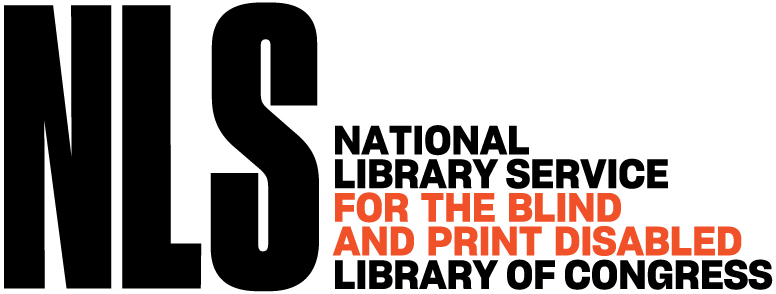
|
|
 |
|
ASK INELDA
|
 |
|
I have a caretaker inclination, and I have been thinking about how to create healthy boundaries and habits for my practice. Do you have any insights on self-care work to create healthy habits? —January training Q&A session
|
|
Trainer Nicole Heidbreder: I have so much to share! First, really try to be mindful to stay within your scope of practice. One of the clearest signs of bad or maladaptive self-care habits is going outside of your scope of practice because you feel you need to help someone. That is the beginning of overgiving, overdoing, and not having clear boundaries. READ MORE
|
| Please submit questions to [email protected] |
|
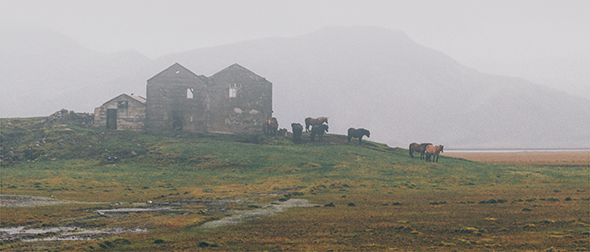 |
|
| Self-Care Prescription |
|
|
Thich Nhath Hanh 1926-2022
|
Your true home is something you have to create for yourself. When we know how to make peace with our body, to take care of our body, and release the tension in our body, then our body becomes a comfortable, peaceful home for us to come back to in the present moment. When we know how to take care of our feelings—when we know how to generate joy and happiness, and how to handle a painful feeling—we can cultivate and restore a happy home in the present moment. And when we know how to generate the energies of understanding and compassion, our home will be a very cozy, pleasant place to come back to. But if we’re not able to do these things, we won’t want to go home. Home is not something to hope for, but to cultivate. There is no way home; home is the way.
—Thich Nhath Hanh
|
|
|
|
| News Briefs |
The U.S. Struggles With End-of-Life Care Quality
|
|
In a study evaluating the quality of end-of-life care among 81 countries, the United States ranked 43rd. The indicators that the U.S. scored poorly on include high costs, which act as a barrier to getting appropriate care; lack of help with nonmedical concerns; overtreatment of patients; and the delivery of clear and timely information so patients can make informed decisions. The U.S. measured well on indicators such as treating patients kindly; asking sufficient questions to determine patient needs; encouraging contact with friends and family; and providing care in a clean, safe, and comfortable environment. READ MORE
|
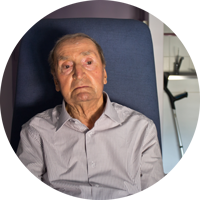 |
|
Man Receives Pig Heart: Controversy Heightens Awareness of Long Waiting Lists for Recipients
|
|
More than 41,000 kidney transplants were performed in the United States last year. Yet more than 100,000 people remain on the national waiting list, and about 12 people die each day waiting for a kidney transplant, according to the National Kidney Foundation. More than 5,000 heart transplants occur each year globally, although it is estimated that up to 50,000 people are candidates for a transplant. INELDA does not take a stance on xenotransplantation (animal to human transplants) and is reporting this story based upon lives lost waiting for kidney and heart transplants. READ MORE
|
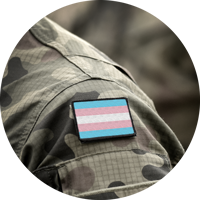 |
| Veterans’ Health Records Now Display Gender Identity |
|
The Veterans Health Administration of the Department of Veterans Affairs has introduced new self-identifiers into their national medical record system. Now veterans have a broadened choice of gender expression, including: transgender male, transgender female, nonbinary, and other or does not wish to disclose. These identifiers will allow transgender, gender diverse, and intersex veterans to receive better health care and will alert health care providers to possible experiences of discrimination that can affect overall health. READ MORE
|
|
|
|
|
| The Final Word |
|
| Turn You Over |
| by Jericho Brown
|
|
All my anxiety is separation anxiety.
I want to believe you are here with me,
But the bed is bigger and the trash
Overflows. Someone righteous should
Take out my garbage. I am so many odd
And enviable things. Righteous is not
One of them. I’d rather a man to avoid
Than a man to imagine in a realm
Unseen, though even the doctor who
Shut your eyes swears you’re somewhere
As close as breath. Mine, not yours.
You don’t have breath. You got
Heaven. That’s supposed to be my
Haven. I want you to tell me it sparkles
There. I want you to tell me anything
Again and again while I turn you over
To quiet you or to wake and remind you
I can’t be expected to clean up after a man.
|
| |
 |
|

© INELDA 2021 International End of Life Doula Association is a
501(c)(3) tax-exempt nonprofit organization
Tax ID#: 47-3023741
Subscribe Here |
|
|

